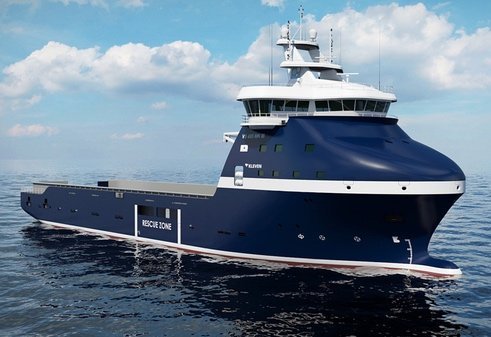AlixPartners: 2017 toughest year for OSV operators

2017 could be one of the toughest years in decades for offshore supply vessel operators according to a study of 44 companies in the industry by AlixPartners.
The company’s analysis points out that rising debt burdens making it increasingly unlikely that most companies can maintain solvency for the next few years, and firms will need to confront their new reality: lower demand, shorter charter contracts, and reduced day-rates.
“There simply isn’t and won’t be enough work for all players going forward into the foreseeable future. And it’s hard to persuade others to scrap their vessels, because like your own, they were built to a high technological and engineering standard – read: expensive – just a few years ago,” said Albert Stein, managing director and leader of the shipping team for AlixPartners.
According to the study, over the past two years total rig count has declined by approximately 4% while marketed vessels have declined by 15%. However, in the same time period contracted rigs have declined by more than 30% with fleet utilization levels hovering between 65% and 70%. Operators continue to see a fall in operating income as day rates and utilization remain at depressed levels.
Due to this decline, the total global E&P spending on OSVs has declined from $18.1bn in 2014 to $14.8bn in 2015 and $11.9bn in 2016, a staggering 34% decline in just two years.
“Operators who leverage the current market situation to successfully trim their balance sheets are likely better positioned to withstand a prolonged downturn and ultimately potentially drive theconsolidation so badly needed within the sector”, said Esben Christensen, Managing Director and co-leader of AlixPartners’ shipping team.
AlixPartners said the Middle East is the only region where OSV demand is still holding steady because of favourable oil economics, and the firm expects to see more bankruptcy filings in the next 12-18 months given the less than bullish tone of oil prices, reductions in chartering rates, and newbuilds coming into the market from Chinese yards.
Despite the gloomy outlook, AlixPartners have found that some OSV operators made significant strides reducing costs across the board, and in pursuing M&A which generates opportunities for additional synergies and potentially greater capacity discipline.
“Another sign of hope is that many experts still see a positive environment for oil prices in the longer term, which will eventually lead to increased demand for OSV services,” the company said in the study.
